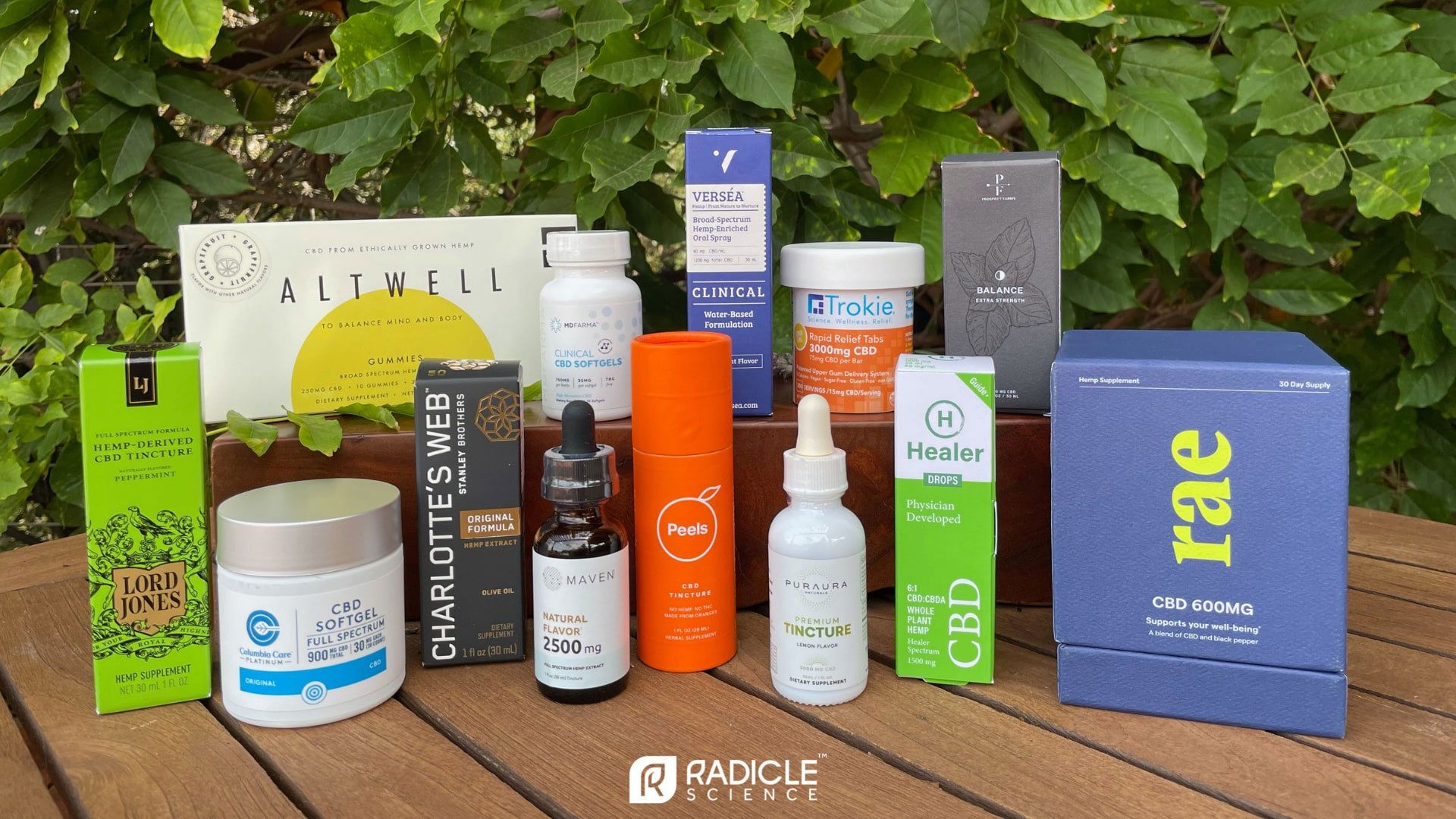Radicle Science launches study evaluating effectiveness of CBD products
The study will collect data on 13 CBD brands and a diverse population of 3000 participants.
The brands participating in Radicle ACES. Courtesy of Radicle Science.

Radicle Science (San Diego, CA), a healthtech B-corp that validates natural products, has announced the launch of the Radicle ACES (Advancing CBD Education and Science) study. The study will utilize Radicle Science’s proprietary data analytics platform and a virtual, direct-to-consumer (D2C) model to deliver objective health outcome data across diverse populations and conditions. This will be the most comprehensive randomized controlled trial of its kind, collecting data on thirteen U.S. CBD brands: Altwell, Charlotte’s Web, Columbia Care, Healer, Lord Jones, Maven Hemp, MD Farma, Peels (a citrus-derived brand), Prospect Farms, Puraura Naturals from Enhanced Botanicals, Rae Wellness, Trokie, and Verséa Wellness.
The four-week Institutional Review Board-approved study will evaluate the effectiveness of CBD on well-being, quality of life, pain, sleep disturbance, and anxiety across nearly 3000 participants throughout the U.S. Radicle Science uses a 100% virtual, direct-to-consumer approach. Participants won’t have to travel to in-person visit, and surveys are short, taking a total of 40-45 minutes.
“A rigorous scientific study of this magnitude has never before been conducted in the CBD market,” said Pelin Thorogood, co-founder and executive chair of Radicle Science, in a press release. “Radicle ACES is driven by our deep commitment to contribute to the body of evidence to support growing demand from consumers and healthcare providers. Given the scale, the diversity of the participant population and the wide range of high-quality commercial brands included, Radicle ACES promises to deliver rich, objective health outcome data for a variety of common health conditions, with the potential to offer unprecedented guidance on CBD effectiveness based on demographic or behavioral differences.”
The study will capture health outcome data from a highly heterogenous population that includes a variety of ethnicities, age groups, geographies, behavioral habits, and pre-existing health conditions. Participants will be randomized to receive one of the 13 brands at the start of the study or be assigned to a control arm. In addition, Radicle will send a random sample of each CBD product used in the study to the same accredited third-party testing lab to be analyzed for active ingredients such as cannabinoids and terpenes, as well as contaminants such as pesticides, residual solvents, heavy metals, mycotoxins, pathogens, and foreign materials.
Radicle ACES is led by principal investigator Kelsey Laird, PhD, and co-investigator Jessica Saleska, PhD/MPH. Academic collaborators include Miroslav Backonja, MD (clinical professor, University of Washington), Chris Colwell, PhD (Professor, UCLA), Derek Loewy, PhD (director of behavioral sleep medicine at Scripps Clinic Sleep Center), Ethan Russo, MD (founder and CEO of CReDO Science), Kate Taylor, PhD (associate professor, UCLA), Jill Waalen, MD/MPH (co-director of biostatistics at Scripps Research), and more.
“The Radicle ACES study aims to answer lingering questions as to who should take cannabidiol, how much and for what conditions, as well as differing dosage patterns,” said Ethan Russo, MD, scientific expert for Radicle Science, and founder and CEO of CReDO Science, in a press release. “CBD is much more subtle in its effects and quite benign compared to THC. Patients are unclear on what product to choose and healthcare providers don’t yet have the data to counsel on proper dosage.”
Anonymized aggregate results will be released in October 2021.
HHS announces restructuring plans to consolidate divisions and downsize workforce
Published: March 27th 2025 | Updated: March 27th 2025According to the announcement, the restructuring will save taxpayers $1.8 billion per year by reducing the workforce by 10,000 full-time employees and consolidating the department’s 28 divisions into 15 new divisions.










